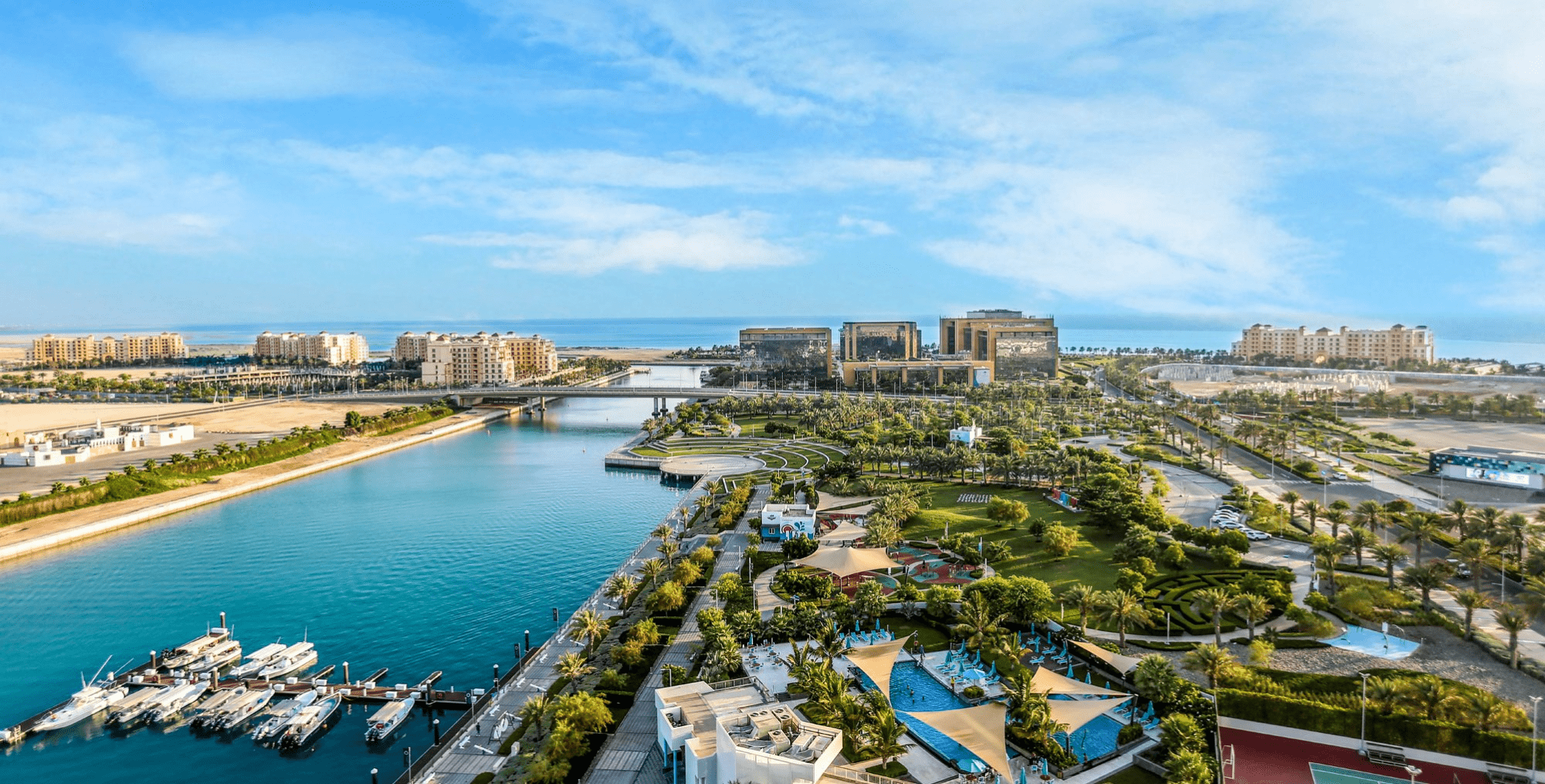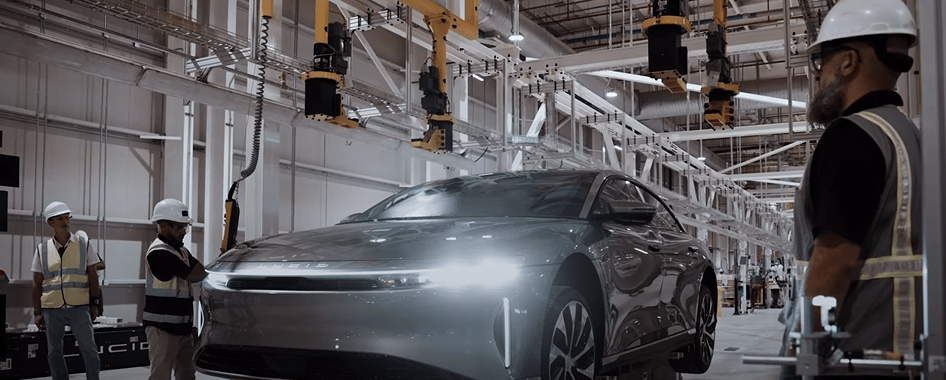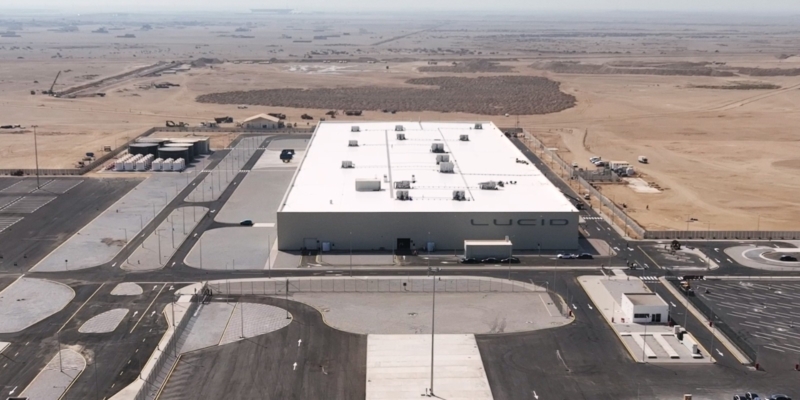A few days ago, Crown Prince Mohammed bin Salman declared that the region in King Abdullah Economic City in Jeddah designated for automobile manufacturing would be renamed the “King Salman Automotive Cluster.” This is part of the Kingdom of Saudi Arabia’s efforts to realise Vision 2030 and increase non-oil revenues and the economy.
Local media sources state that the cluster intends to help the private sector invest and support the growth of potential industries in the Kingdom, adding more than 92 billion riyals ($24.5 billion) to the non-oil GDP by 2035.
Saudi Arabia aims to attract $100 billion in foreign direct investment annually by 2030, according to an American media network report. However, this goal is still unattainable, as the average annual foreign investment in Saudi Arabia is only around $12 billion, according to government data.
Although the Kingdom has released new investment legislation that intends to attract more foreign investment, the report also stated that some analysts in the area question if it is possible to reach the goal of attracting $100 billion in foreign investment per year.
The King Salman Automotive Cluster’s Key Details
The “King Salman Automotive Cluster” emerged in Jeddah, Saudi Arabia, focusing on global industrial innovation and boundless aspirations. The cluster gathered thousands of innovative ideas to surpass expectations and serve as the foundation for a new economic renaissance, fostering a sense of motivation and a sense of purpose in the region. 
The automotive sector, a key component of Saudi Arabia’s Vision 2030, demonstrates a renaissance in economic diversification, industrial capabilities improvement, manufacturing leaps, and a global industrial centre, demonstrating the Kingdom’s commitment to achieving this goal.
King Abdullah Economic City enjoys significant advantages in economic and industrial activities due to its exciting strategic location on the Red Sea coast, its proximity to major cities like Jeddah, Makkah, and Madinah via the Haramain High-Speed Rail, and its sophisticated transportation network. Additionally, King Abdullah Port, one of the region’s most advanced ports, is a crucial component that helps to enhance the export movement.
The King Salman Cluster is the largest of its type in the Kingdom, spanning 60 square kilometres within King Abdullah City’s authorised economic zone. This region offers investment-friendly policies and procedures, which makes it a great place to draw in multinational corporations.
The competitive incentives offered help to boost investments in new industries, particularly manufacturing, and the cluster is essential in facilitating supply chains, which help to achieve the economic objectives of raising the industrial sector’s GDP contribution.
The Saudi Arabian government has announced the opening of a new national automobile sector, marking a significant step towards reducing its reliance on oil and promoting a more diverse economy. This ambitious initiative, aimed at establishing a leading international automobile sector, has been meticulously prepared over the years.
Read more: How Saudi Arabia’s Investments are Driving Electric Vehicle Uptake in the ME
Cluster Objectives
Every factory constructed within the cluster gives Saudi youth a new chance to participate in the industrial transformation. They no longer limit themselves to careers in the service or energy sectors; instead, they can now become engineers in auto factories or specialists in manufacturing technologies, which helps to lower unemployment and boost Saudisation. 
Additionally, the cluster will help localise industries and transfer knowledge, allowing for the development of a robust Saudi industry that depends on local skills capable of running factories and creating cutting-edge manufacturing technologies.
More significantly, given the Kingdom’s near total reliance on oil, the cluster will boost the country’s economy and balance of payments. This cluster’s debut will open up new avenues for the export of automobiles and auto components, which will decrease reliance on imports and result in hard currency inflows.
Achieving the Kingdom’s Vision 2030 is another specific objective since the cluster is a component of an integrated economic system that seeks to establish the Kingdom as a major industrial and logistical force globally and place it on the map of the global automotive industry.
Read more: First Clean Energy-Powered Vehicles Launched in Saudi Arabia
Projects With Large Global Corporations
The Public Investment Fund prioritises the automotive and transportation industry through collaborative projects with the private sector, aiming to develop infrastructure and local supply chain capabilities through cooperative ventures with major global carmakers.
Lucid, an American business partially owned by the Public Investment Fund, inaugurated its first electric car manufacturing facility, AMP-2, over 1.35 million square meters, capable of producing up to 155,000 vehicles annually. The facility seems to reach full capacity by 2028, producing four different types of electric vehicles. 
Subsequently, Saudi electric car brand Seer, a joint venture between Foxconn and the Public Investment Fund, has announced the construction of a factory over one million square meters, set to begin producing sedans and four-wheel-drive vehicles in 2025. It will prioritise environmental preservation, manufacturing efficiency, and creating thousands of local jobs.
Besides, the Public Investment Fund and Korean company Hyundai are partnering to build a highly automated factory in the King Salman Automotive Cluster, with investments totalling over 1.8 billion riyals, aiming to produce 50,000 cars annually, including internal combustion engines, starting in 2026.
Moreover, a tyre manufacturing facility will be built in collaboration with Pirelli, requiring an estimated 2 billion riyals in investment. Furthermore, the facility will begin production in 2026 and focus on producing high-quality tyres under the Pirelli brand as well as others under a new Saudi brand aimed at regional and local markets.
To sum up, the King Salman Automotive Cluster represents the start of a new age in which aspirations become concrete realities that transform the Saudi economy. Saudi Arabia shines in the industrial world with each new plant and investment that enters the market, demonstrating a strong drive and ambition that knows no bounds.
Read more: National Automotive Sector Award 2024: KSA Recognises Outstanding Trailblazers